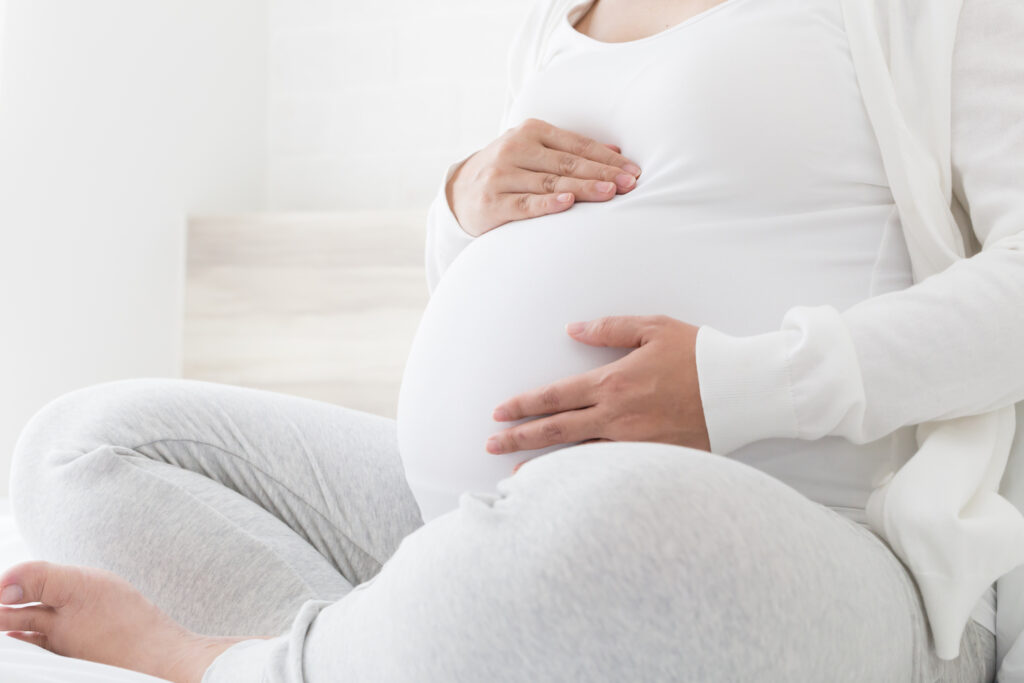Pregnancy and Dental Care – My gums are bleeding, my teeth are loose and my sense of taste has gone wonky. What’s happening to me?
August 20th, 2020
As if the bodily changes, mood swings, morning sickness in the first trimester or heartburn in the last trimester and increased frequency of urination weren’t enough to deal with during pregnancy you might also be experiencing of have experienced changes to your mouth, gums and teeth.
A few common ailments and their causes are outlined below.
Why are my gums bleeding?
As many as half of all pregnant women develop pregnancy gingivitis. This is a mild form of gum disease that commonly occurs between the second and eighth months of pregnancy. It is caused by your changing hormones which make your gums more irritated by plaque. It results in gums that are red, tender, sore and quick to bleed during brushing or chewing hard fruits like apples.
To reduce inflammation, continue to brush twice a day for two minutes each time and clean between your teeth at least once a day. If the bleeding becomes problematic talk to your dentist about what else you can do to keep your gums healthy.
You will be pleased to know that pregnancy gingivitis usually disappears after childbirth.
Why do some of my teeth feel loose?
Again, changing hormones are the cause of this issue. Progesterone and estrogen can loosen ligaments and bones that keep your teeth in place. And, this can occur even if you don’t suffer from pregnancy gingivitis. As hormonal levels return to normal after childbirth the, loose teeth you may have experienced will no longer feel loose.
I have lumps in between my teeth. What caused them and what should I do?
Although not as common as some other conditions during pregnancy, some women with pregnancy gingivitis will have an exaggerated response to bacteria and plaque build-up. This can cause the development of one or more large, usually painless lumps in the gums between teeth.
These lumps are called pregnancy tumours. Although the name is scary the lumps themselves are not. They are seldom cancerous, at the most cause some mild discomfort when eating and usually shrink and disappear after delivery.
There are occasional cases where the lumps do not shrink after childbirth. In these situations, the lumps need to be surgically removed.
I have morning sickness. What can I do to protect my teeth?
I have often wondered how this common condition during pregnancy came to be called morning sickness. For, truth be told it can happen at any time during the day. Be that as it may, it is important to practice some extra dental care if you suffer from bouts of morning sickness.
As vomit contains stomach acids that can eat away at your teeth it is recommended you rinse your mouth by swishing and spitting. Water, a diluted mouth rinse or a mixture of 1 cup water and 1 teaspoon of baking soda can be used. Follow this up with a good brushing about a half-hour later.
In the last trimester many women complain about Indigestion, also called heartburn or acid reflux. This is common in pregnancy, especially when lying down and trying to sleep. The same swishing and spitting followed by brushing 30 minutes later is recommended if you taste acid in your mouth due to heartburn.
I have a sour, metallic taste in my mouth. What can I do to get rid of it?
This is called dysgeusia (pronounced dis-gwe-zee-ah) and affects some women in their first trimester of pregnancy. It is caused by an increased level of estrogen and often disappears by the second trimester.
Ingesting acidic liquids or foods like orange juice, lemonade or foods marinated in vinegar like pickles can help take away the taste.
If you suffer from dysgeusia, start counting down the days until the beginning of your second trimester!
Posted in Dental Care


